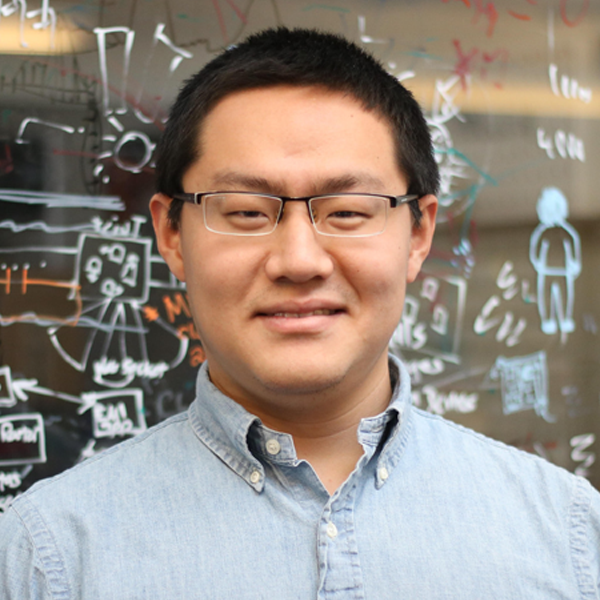Anhong Guo receives NSF CAREER Award to develop assistive technologies for people with disabilities

Anhong Guo, assistant professor of computer science and engineering (CSE) at the University of Michigan, has received a National Science Foundation (NSF) CAREER Award to support his development of personal assistive technologies for people who are blind or have low vision (BLV). Guo aims to bridge the gap between generic assistive tools and the unique needs of BVI users, empowering them to create custom solutions tailored to their individual challenges.
A distinguished honor given to a select number of early-career faculty, the NSF CAREER Award is given to young scientists and engineers who demonstrate excellence in research and education and have the potential to lead advances in their field.
Guo’s project, titled “Empowering People Who Are Blind to Create Personal Assistive Technology,” focuses on harnessing the power of AI and end-user programming to give BLV individuals greater control over the technologies they use. His research addresses the inadequacies of one-size-fits-all assistive technologies by enabling BLV users to specify, prototype, and implement custom software tools. By developing accessible programming methods, Guo aims to empower BLV individuals to create personalized solutions that address a broad range of daily tasks, from navigation to communication.
In addition to these research contributions, Guo’s proposal includes educational programs designed to broaden participation in computing among students with disabilities. These initiatives aim to introduce programming and AI concepts to BLV learners, fostering a new generation of innovators equipped to tackle accessibility challenges.
Guo has been widely recognized for his contributions to human-centered computing research, earning accolades such as best paper and honorable mention awards at top conferences like CHI, UIST, and ASSETS, as well as the 10-year impact award at ISWC for his work on wearable technologies in warehouse environments. His achievements include recognition as a Forbes 30 Under 30 Scientist, a Google Research Scholar, and an inaugural Snap Inc. Research Fellow. He holds a PhD in Human-Computer Interaction from Carnegie Mellon University and a master’s from Georgia Tech, and has been a faculty member in CSE since 2021.
 MENU
MENU